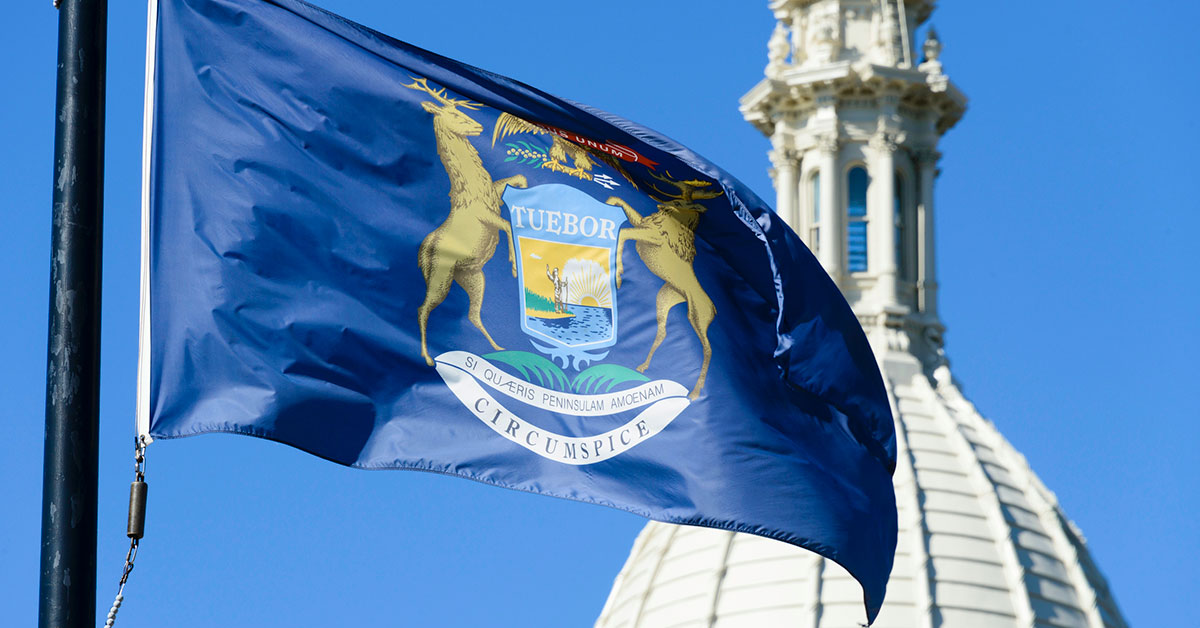
New Legislation would Ban Restrictions on Short-term Rentals via Zoning Ordinances
Local governments in Michigan have begun fighting short-term rentals by adopting new zoning regulations that would categorize rentals of fewer than 28 days as a commercial transaction in a residential zone.
However, new legislation being considered in Lansing would prevent local municipalities from using zoning ordinances to prohibit short-term rentals.
The legislation, introduced recently by Rep. Jason Sheppard from Temperance, would ban restrictions on short-term rentals through zoning ordinances, suggesting that an abuse of zoning laws infringes upon private property rights and negatively impacts the local economy.
By boosting tourism into the state of Michigan and specifically into local communities, short-term rentals are a boon to local economies as more money is spent at local business by visitors.
Michigan’s economy is strongly supported by vacation rentals and the second home market – especially in the summer months when many small communities in the state rely on this tourist activity.
Sheppard’s legislation is the latest effort to address short-term housing bans at the capital.
In 2017, similar legislation was introduced in both the house and the senate, and although it didn’t pass, there was a lot of support. With turnovers both in the governor’s mansion and in the legislature since, there is a renewed interest in keeping the option of short-term rentals viable for Michigan property owners.
And why not? According to information from AirBnB obtained by The Detroit News, approximately 640,000 visitors used AirBnB alone in Michigan in 2018, providing the property owners with $78 million in supplemental income.
This doesn’t include other social media rental platforms like VRBO and HomeAway.
That means the amount of money spent into Michigan’s local economies in 2018 was likely in the nine-figure range.
According to the Michigan REALTORS®, Sheppard’s legislation would:
- provide Michigan homeowners the ability to maximize the value of their property through the use of short-term rental arrangements
- provide clarity for and protect a practice that has long been permitted in Michigan and is essential to the viability of local resort economies
- provide for uniform and fair treatment of residential properties in all residential zones.
What the legislation would not do is prevent local government from enforcing nuisance ordinances and housing codes that are in place to protect the quality of life of community residents, provide public safety and address discourteous behavior.
In total, a package of bills involving short-term rentals, listed as House Bills 4554-63, were introduced. The bills define a short-term rental as a property that is rented for 28 days or fewer.
These bills would allow for some local zoning regulation of short-term rentals but would list rentals of 14 days or less in the same calendar year as a residential use, rather than a commercial one.
Titled “The Michigan Short-Term Rental Promotion Act,” House Bill 4554 specifically would create a database of vacation rentals in Michigan and impose a bed tax, similar to those levied on traditional hospitality industry locations such as hotels and motels.
Earlier this year, the Michigan Supreme Court issued a decision that upheld the ability of local ordinances to ban short term rentals.
However, not all municipalities have gone down that path. So, for now, while the debate rages on, those looking to rent out their space should check their local ordinances first. If no laws are on the books then the city itself isn’t preventing it.
The city of Grand Rapids, for example, actually has very restrictive regulations on how and when people can rent their property on a short-term basis. Some of these regulations include:
- a license is required
- only one room can be rented at a time
- the property owner must not only own the home but live there as well.
- there is a limit of approximately 200 licenses per year
Regardless of how this turns legislative fight turns out, those considering renting out homes or spare rooms for travelers should keep insurance in mind.
Insurance companies only cover what the owners have disclosed. It is important to disclose all information to an insurance provider to ensure coverage for any liability.
Time to Focus on Affordable Housing
Taxes on real estate are not the answer. Sign the petition calling on Congress to address our country’s housing shortage.





